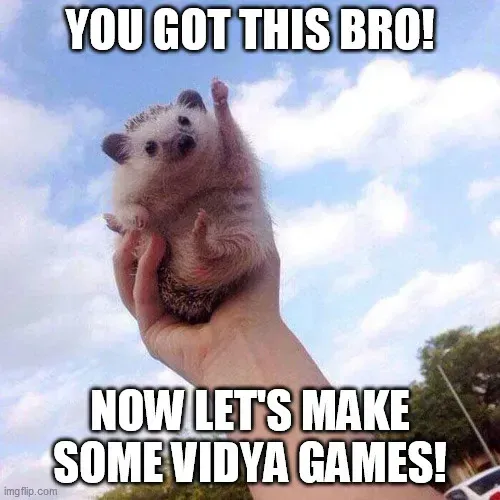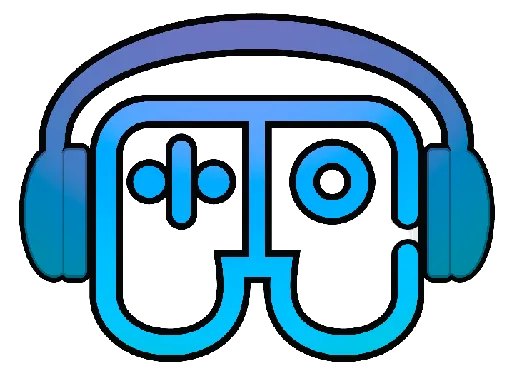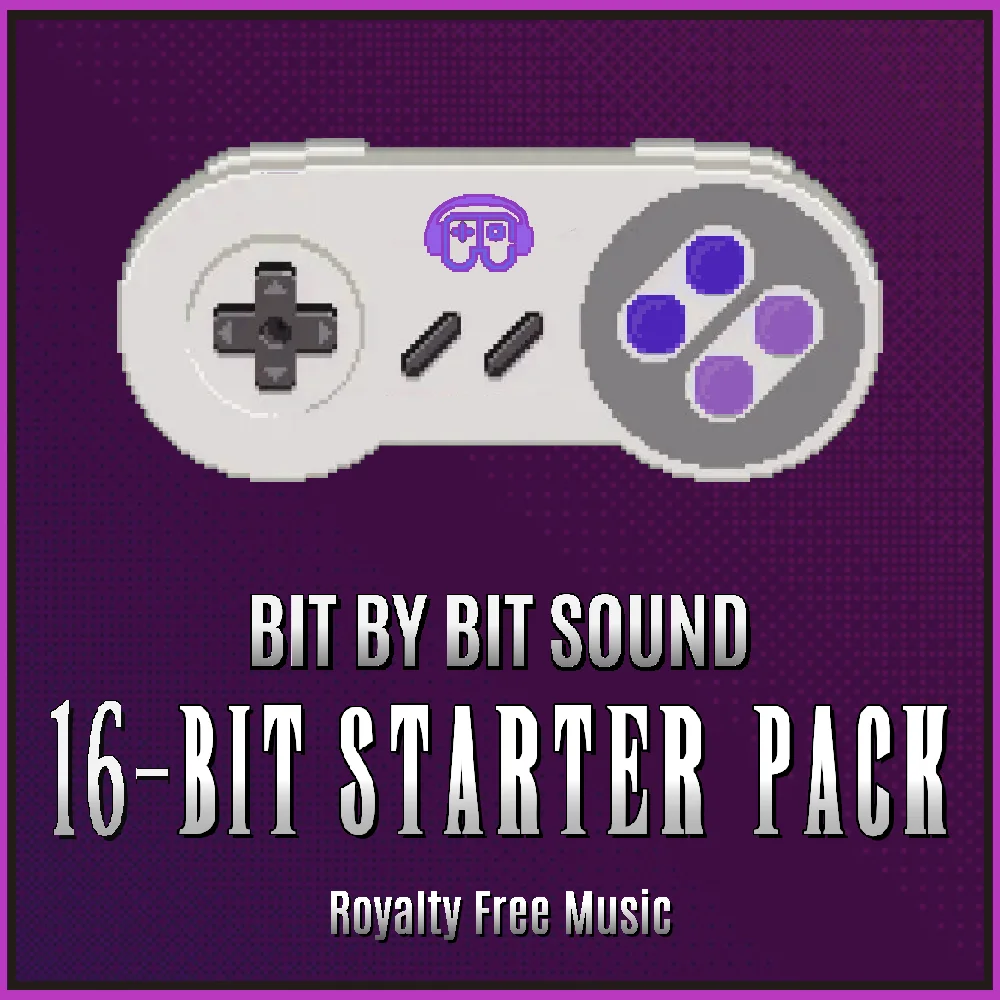Blog Articles
Search Bit By Bit Sound

5 Tips to Stay Motivated and Finish Your Indie Game
Long term projects provide us with many challenges. Whether you are a game developer, or a video game composer like me, one of the biggest challenges you will face is staying motivated.
Sure, when that initial burst of inspiration hits us, our minds swim with possibilities of the outcomes, but we tend to not think about the journey. Well as it turns out, life isn’t about the destination, it’s about the journey, and we should look at our various projects the same way.
It can be really easy to lose sight of our goals a month or two or five into our projects. But it is at these times we must persevere and see our project through to the end. In fact, I recommend not dragging projects out for very long, so as to maintain the motivation, but I understand that in game design, we don’t have that luxury.
Here are 5 tips you can utilize to maintain your motivation, and GET YOUR PROJECTS DONE.

1. Know Your Why

No matter what the endeavor, whatever discipline, it is important to know your why in life. This is crucial for those days when your motivation wanes. If you don’t have a strong why, it will be very easy to ignore your project some days. “Ehh, I’ll get to it tomorrow,” is a sign of a weak Why.
Defining your why can also be handy in figuring out if you are heading down the right path. Hint: If you are looking into creating a game, or making a movie, or whatever just because you want to make a lot of money, that is a weak why.
However, if you want to make a lot of money to support your family, give your kids the life you never had, buy your mother or father a new house so that they can finally retire…that my friend, is a much strong why. Hint #2: A strong why is not always about you. It is about others and how you can best serve the world with your gifts.
2. Define Your Minimum Viable Product
This is super important in the gaming world. There is a phenomena call Scope Creep, where an idea for a simple game will suddenly be bloated with features and interesting mechanics that the world has never seen before. Now there is nothing wrong with being innovative, in fact I absolutely encourage that. However, it is super easy to inflate the crap out of your game once you get those creative juices flowing.

The trick is to figure out what the Minimum Viable Product is, or the most basic form of your project that you could release and actually call it a game. That should be your first major goal of the project.
Write out your end goal, and work backwards by mapping out each step that it will take to get there. Plan the basic framework of your game, as well as various costs that will come with development. This includes artwork and music. (Find out how to estimate the cost of music by reading this article.)
Once you have achieved a MVP, if you aren’t restricted by any impending deadlines, you can start to consider adding in a couple of those extra fluffy features. Just beware in this stage you don’t decide to add something that is going to add months and months of work onto your plate. Speaking of deadlines…
3. Set Deadlines
Set. Deadlines. If you are in charge of your project, no one is going to do this for you, and you can easily fall into the trap of perpetual development. In my opinion, one of the worst things a creative can do is work on a project for years and years and years. There are so many cases of projects that took over a decade to complete. And what happens when they finally release? More often than not, lackluster reviews and major disappointment.
Don’t believe me? Maybe we should ask…
Duke Nukem Forever – 15 years in development, 5.8 on metacritic
Spore – 9 years development, 5.5 on metacritic
Final Fantasy XV – 10 years development, 7.6 on metacritic (not bad, but for 10 years worth of dev that is not good)

Get your projects done! Set deadlines and hold yourself accountable to them! There is a trick to this…
4. Tell The World
Let the world know your intentions. Scream it from the rooftops. Tell your friends and family, and complete strangers online that you are going to make a game and it’s going to be about this (or perhaps that).
Letting people know your plans couple with setting deadlines will help you get things done. Why? Because you probably don’t want people to think you are a failure. You want to be able to say you are going to do something and then do it.

This can be nerve racking at first, but trust me, try it out. Feel that healthy bit of pressure knowing that there are people anticipating what you are working on. It will light a fire underneath you that you may have never known to be possible.
Now, lets say you tell the world I’m going to have a first build done 1 month from now, things go south and you miss the deadline. Guess what, it happens. The thing is, you will probably be much farther a long in your project in this scenario, if you set a deadline and tell the world, rather than just thinking about having a build done and telling no one.
In this case, do what the big companies do, and re access your goal/deadline. Go on Facebook, or Twitter or whatever and tell people “Encountered a weird bug I wasn’t expecting, had to push back the deadline to 2 weeks from now,” or whatever you determine. If you have built up some anticipation in people, they will likely be just fine with this news.
Do make sure, that you aren’t pushing your deadlines back because it’s not “Perfect.”
5. Perfection is the Enemy of Completion
Read the title again and drill this into your head.
Perfection is the Enemy of Completion.
Here is the cold hard truth. Perfection doesn’t exist. It never has and it never will. This can be a hard pill to swallow, but the sooner you learn this the better off you will be.

There were so many projects I tinkered on when I was younger that never saw the light of day because they weren’t “perfect.” The thing is, by completing projects and showing them to the public, you get better way faster than working on things in secret. Reason being is because you can collect feedback and find out what is working and what’s not. What resonates with people and what doesn’t.
Often times, we may think we know how people will react to things, but we truly don’t. There have been times where I poured my soul into a song and it is met with indifference. Then there are other times where I slap something together and people rave about it.
Point being is that by completing projects, by developing the skill to ‘ship products,’ we grow exponentially faster as creatives. There is a great quote from a musician I follow named Joe Gilder. He really solidified this lesson for me with this simple phrase:
“I’m not perfect, so why should I expect my music to be?”
Boom. Mind freakin blown dude. None of us are perfect, so why do we expect our art to be? That’s such an unfair, unrealistic standard to set on ourselves. It’s also selfish, because by not finishing projects, and not sharing them with the world, we are denying them an experience. We are denying them the chance to play our game. We are denying them the chance to experience our story. We are denying them the chance to listen to our music.
Don’t read this as just put out sloppy work. That’s not what I’m saying. You still want to deliver quality work, but if the goal of perfection is stifling your creativity, it’s time to stop. I’ll tie another great nugget of wisdom into this that I got from my brother in law:
“Aim for perfection, but just do the best you can.”

Bonus: Build a Supportive Team
Bonus time! Points are doubled this round.
There is a saying that goes something like, “You are the average of the 10 people you spend the most time with.”
The company you keep is super important, not only in game dev but life in general. Toxic people are everywhere, and they really excel at one thing in particular: holding you back.
That is why you must surround yourself with encouraging, inspirational people. Build up a team or a network of support, people who will be there for you when you falter (because we all do at some point).
Luckily, in the game dev field, there is a plethora of disciplines that come together for a shared goal. Start reaching out and befriending different programmers, artists, writers, composers (hey that’s me!).

This also extends to the kind of content you consume. Stand guard at the gates of your mind, and be cautious of consuming too much content that can negatively affect your subconscious.
Don’t mistake this for me saying suppress all negativity within you, because that would be denying a natural part of the human experience. But if we are conscious and aware of the thoughts and feelings that are entering our minds, we can manage them from a state of awareness and presence, rather than being reactionary.
I hope these tips helped. Leave me a comment if they did, and let me know what your favorite one was.
Now get out there and finish your projects! Best of luck!
-Bert

